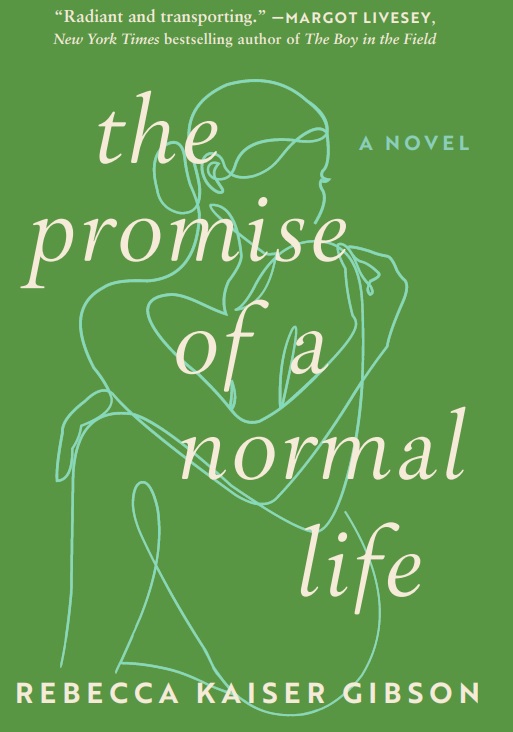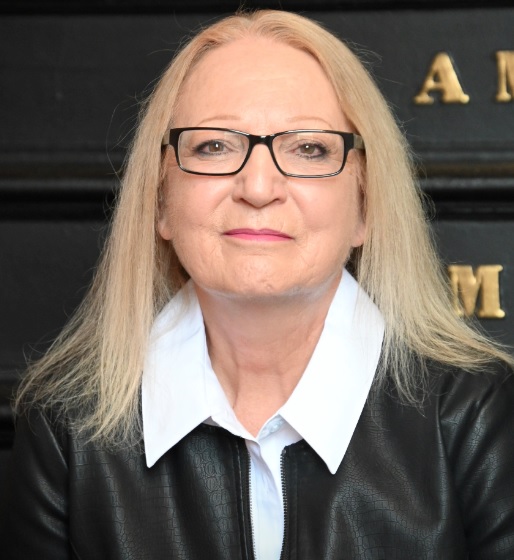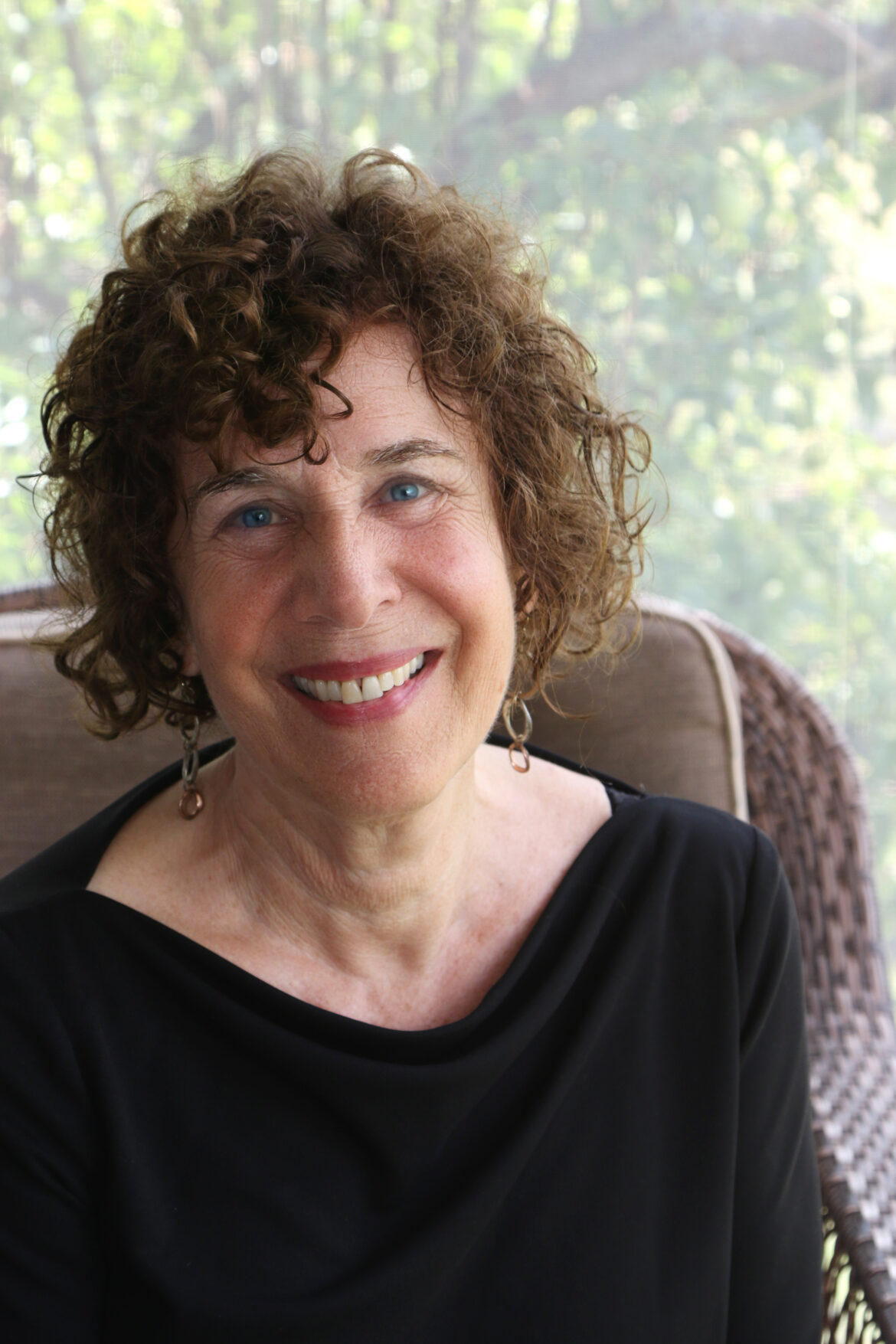MARLBOROUGH, NH:
Rebecca Kaiser Gibson’s debut novel is The Promise of a Normal Life (Arcade Publishing). Although Gibson is known mainly for her captivating poetry, Rebecca and I talked about her new work and the switch in genres. The novel takes place from 1958 to 1986. I started by asking her why she wrote a novel and what her hope was.

“It wasn’t exactly a decision to write a novel. It was that I had written all these parts and put them away in various boxes that I did not look at for decades. Then during the pandemic, I thought I’d sort out my closet. And I found them. I thought it would be nice if they would be out there. Then I started organizing it. I think because I had done the poetry books, I had a different sense that I might have of how I could sequence it. It was not just chronological particularly, but it had a reason for being sequenced like that. I discovered I had this image of how it feels writing a novel or writing prose. It feels like I’m in a current of a river. I’m moving on some horizontal way, drawn by gravity in some way. Whereas, when I’m writing poetry, it feels like I’m in air, not grounded but pulling together various things into a three-dimensional shape that doesn’t require the things that being on the earth requires.”
She continued, “I think the pandemic had a lot to do with it because I felt like there was time to walk through what I was walking through—in other words, writing prose sentences. Lots of it was already written by the time I put it together. When I realized this is all about one person and the different pieces were written at different times, and I had no idea why I wrote them. I never showed them to anybody. I didn’t hide them. I just wrote them and then put them away. Actually, early on, twenty years ago, I did show them to a woman who was going to help me with my prose writing, and I was furious with her. She kept basically asking who, what, where, when, how, and why questions. I thought it doesn’t matter. Slowly over time, I began to realize, well, yes, you do need some guideposts you need to locate. I had just read a book by Barbara Kingsolver, in which she had divided the sections by date, which ten years ago would have annoyed me. This novel is organized by date, and the sections are by date partly because I was juxtaposing the early time with the later time and back to the early time. I had to have a way of someone knowing where they were and how one time related to another.”
One of the reviews for the book by New York Times bestselling author Margot Livesay wrote, “Gibson’s debut novel that precisely observes how finding one’s own voice can play out over the course of a life-through the complications of growing up Jewish, family, gender roles, relationships, sex, feminism, marriage, and divorce.” So much goes on in her main character’s life, yet Gibson never tells us her name. I asked Rebecca why.
“I do not name her, and I did that without thinking through logically why am I doing this or not doing this. But in retrospect, it’s since been a question people have been intrigued by. I realized if I had named her, I would have objectified her. This book is subjective from her point of view. She doesn’t see herself in that respect, three-dimensionally. She’s just sort of there observing. But, if I named her, I would, in a way, be the omniscient narrator. I didn’t want to be. I wanted her unmodulated by my opinions of her, to move through and do these things, which also, presumably, the reader is seeing the world from her point of view and maybe, probably making conclusions like why doesn’t she do something. The answer to a question like that is, look at her situation. What’s influencing her? Who’s influencing her? What about the time? What about the women’s movement, and how in what sort of distorted manner she takes it in, which is supposed to be sexually liberated and supposed to be a whole powerful person? But she doesn’t get what that would mean.”
I asked Rebecca to tell us how she came up with the title.
“I have to answer that in two different ways. Everyone who thinks about it would think, what’s a normal life? So that’s part of it which is heading towards this thing that actually doesn’t exist, thinking that it does. If I just do this, I’ll be there. She’s feeling like she doesn’t quite fit anywhere. What does she need to do to fit? The second part is there also. I think underneath that, I’m beginning to realize that she actually has a lot going for her. And there is promise in her that she doesn’t even know about. She’s un-self-aware, which is that she knows a lot, and she’s trying a lot to make sense of things, and that’s promising.”
“The truth of the matter is I didn’t come up with the title. A friend of mine included that phrase in her description of the book early in the process before he took me on. The publisher was saying help me understand who this book would appeal to and describe it. A friend of mine described it, and she had embedded in that description that phrase. Then someone else I was talking to said, wait, that’s a great title. I said, yes, that is true. It is kind of reaching for something which would be considered normal, that is, on the one hand, an impossible attempt and, on the other hand, a motivating one.”
February 7th is the launch day for The Promise of a Normal Life. Rebecca’s book reading tour includes:
- Porter Square Books, Cambridge, MA, Wednesday, February 8th, at 7 PM with Robert Pinsky
- Gibson’s Books (Virtual) Thursday, February 9th at 7 PM. Register for Zoom at https://www.eventbrite.com/e/515186856757
- Toadstool Bookshop, Peterborough, NH, Saturday, February 11th at 11 AM
- Word Bookstore, Brooklyn, NY, Thursday, February 16th at 7 PM with Scott Schomburg
- The Writer’s Center, Bethesda, MD, Saturday, February 18th at 2 PM

Beverly Stoddart is a writer, author, and speaker. She recently launched a new Zoom series talking with New Hampshire writers called The First Line. After 42 years of working at newspapers, she retired to write books and a blog. She is on the Board of Trustees of the New Hampshire Writers’ Project and is a member of the Winning Speakers Toastmasters group in Windham and the Ohio Writers’ Association. Her latest book is Stories from the Rolodex, mini-memoirs of journalists from the 1960s, 1970s, and 1980s. A prized accomplishment was winning Carl Kassel’s voice for her voice mail when she won the National Public Radio game, Wait Wait…Don’t Tell Me! She has been married for 45 years to her husband, Michael, and has one son and two rescue dogs.





